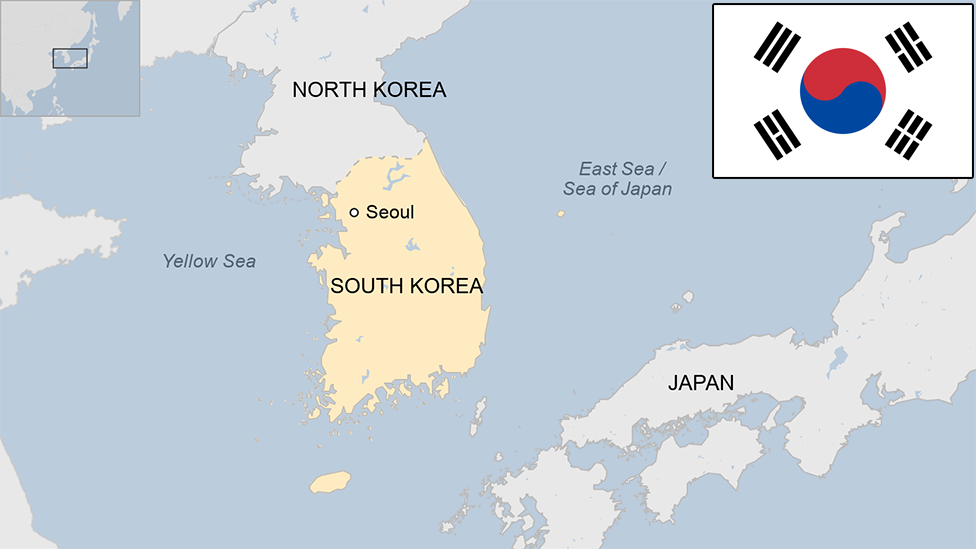South Korea's Park denies following cult as scandal continues
- Published
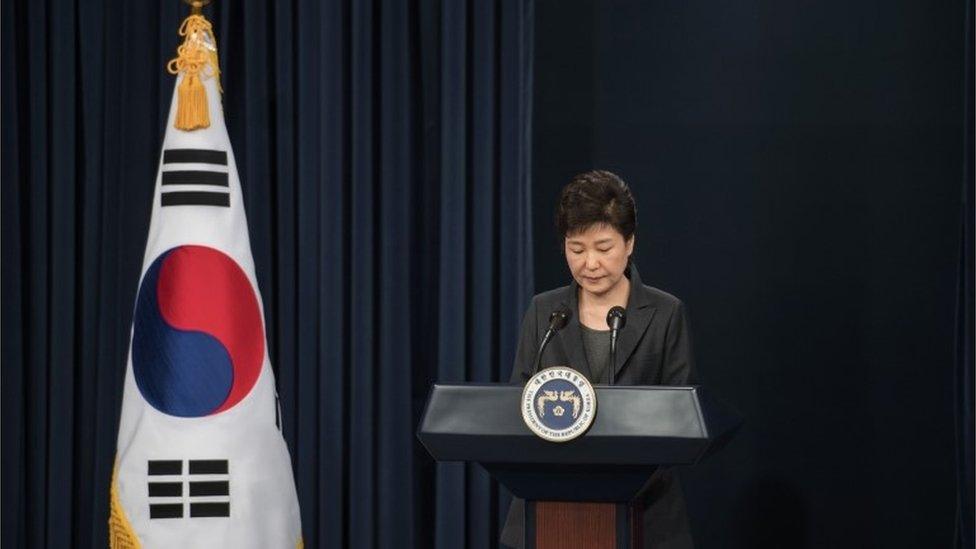
Ms Park said she had "put too much faith" in her friendship with Ms Choi
The South Korean President, Park Geun-hye, has publicly denied falling victim to a religious cult as scandal threatens to engulf her leadership.
Appearing close to tears in a televised address, she apologised for allowing a long-standing friend inappropriate access to government policy-making.
She agreed to be questioned over the scandal but did not offer to resign.
Choi Soon-sil is suspected of using their friendship to solicit donations to a non-profit fund she controlled.
Ms Choi is in detention facing charges of fraud and abuse of power.
The main opposition party said the president's apology lacked sincerity and it called on Ms Park to step back from state affairs.
Scuffles broke out between police and demonstrators demanding Ms Park's resignation in central Seoul on Friday.
'Absolutely not true'
Ms Choi, a long-time friend of Ms Park's, is the daughter of Choi Tae-min, a shadowy quasi-religious leader who was closely linked to Ms Park's father, then-president Park Chung-hee.
On Friday, Ms Park went on TV to deny allowing cultish rituals to be held in the presidential palace.
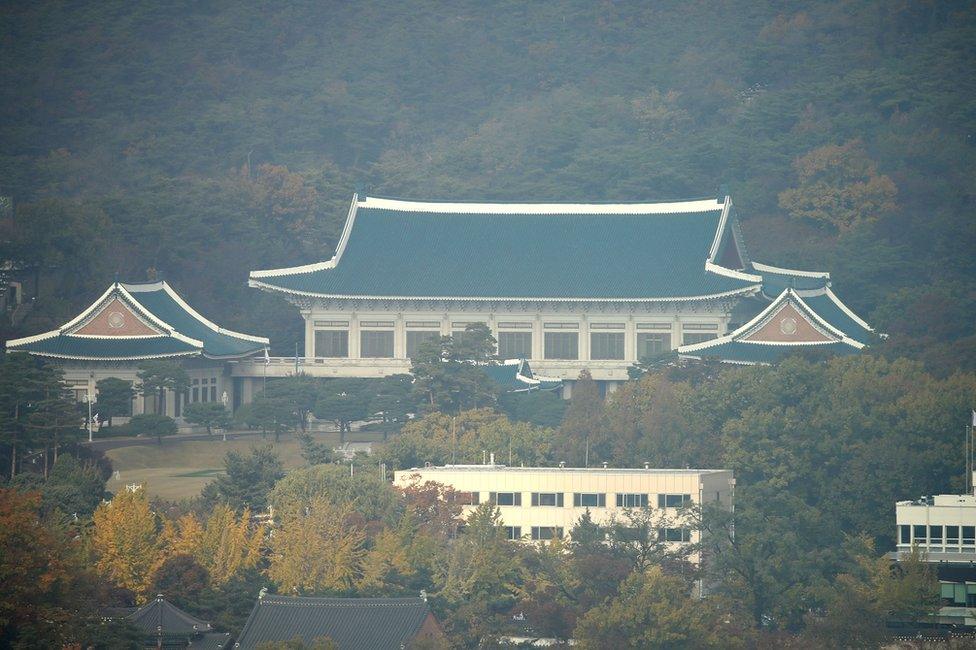
Rituals were allegedly performed inside the Blue House (presidential palace)
"There have been claims that I fell for a religious cult or had [shamanist rituals] performed in the Blue House, but I would like to clarify that those are absolutely not true," the president said.
She said she took sole responsibility for access to government documents and was willing to be investigated.
She had, she said, "put too much faith in a personal relationship and didn't look carefully at what was happening".
Anyone found to have done wrong would be punished, she said, and "if necessary, I'm determined to let prosecutors investigate me and accept an investigation by an independent counsel too".
The scandal has left Ms Park with an approval rating of just 5%.
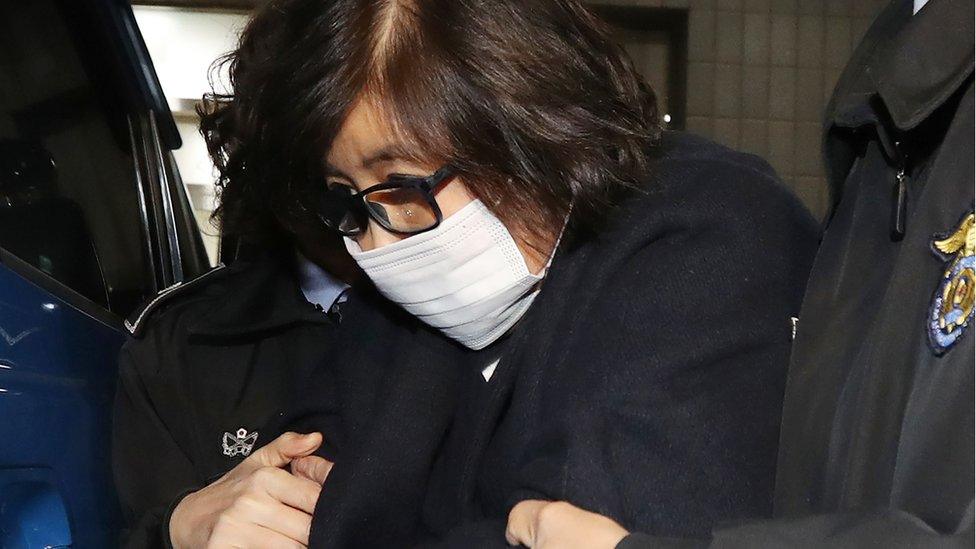
Ms Choi, a long-time friend of Ms Park's, is the daughter of Choi Tae-min, a shadowy quasi-religious leader
She has already replaced her prime minster, reshuffled her cabinet and dismissed several aides, but there are growing calls for her resignation or impeachment.
Choo Mi-ae, leader of the main opposition Democratic Party, said she did not believe the apology was genuine and called on her to accept a new prime minister recommended by parliament.
Ms Park became her country's first female president when she was elected in a close-run contest in December 2012.
- Published3 November 2016
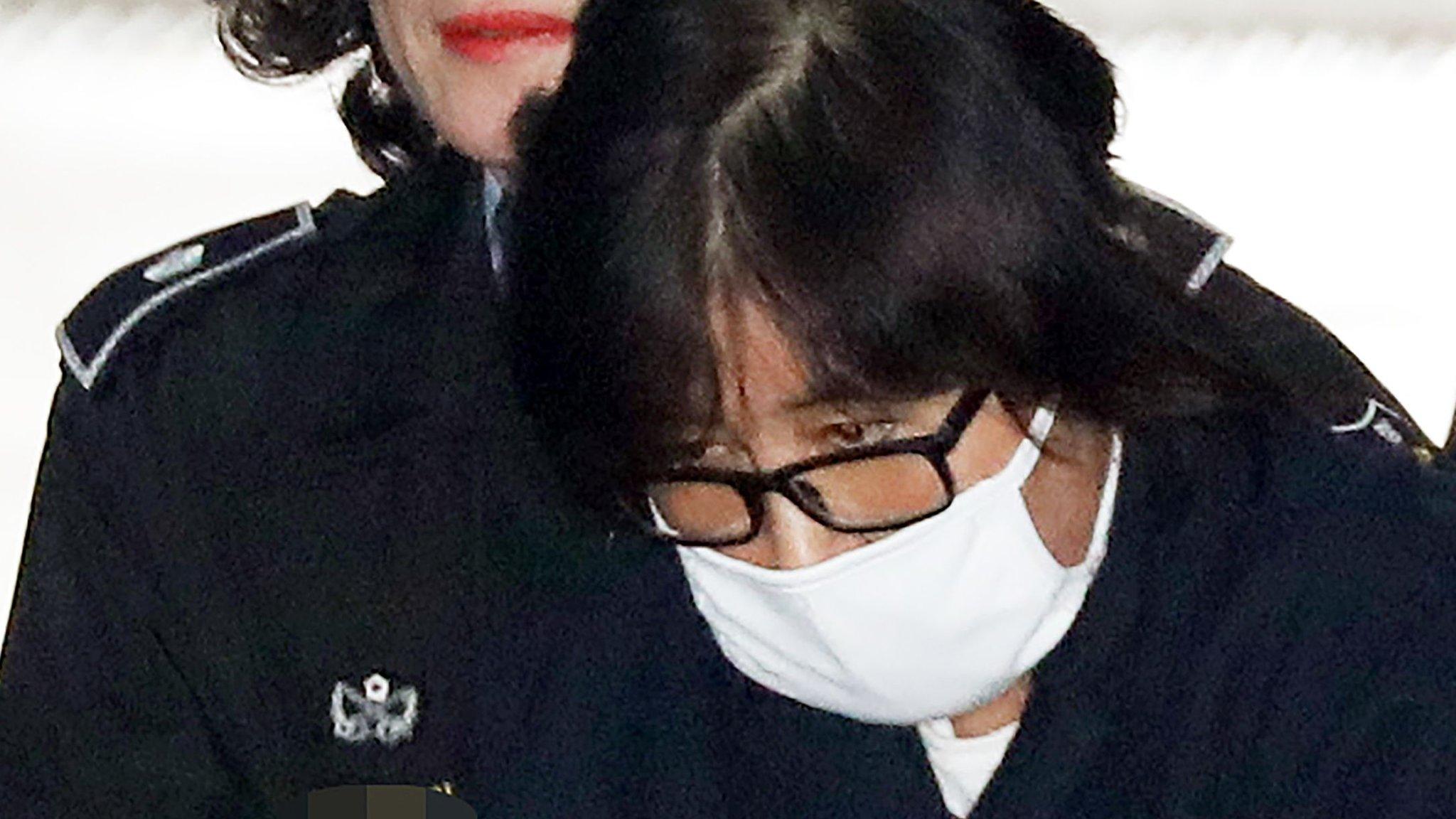
- Published3 January
